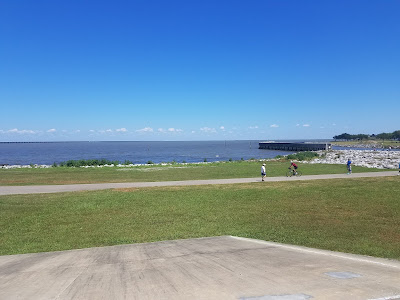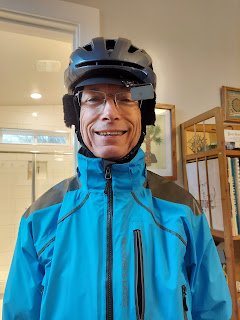Give it a new name
This
is a pretty short post about my lifelong struggle with what in the past
I’ve called “mild depression and anxiety” or “dysthymia” but will now call something
else. Thanks for reading. I do not plan to focus on this
in upcoming posts, but no guarantees. I’ve mentioned struggles in
the past, and may do so again. It’s a big challenge, and I am stoked to make
some fundamental changes.
Is
it possible that I could simply give something a name and in so doing change my
relationship to it altogether, in a transformative way? The new name
would be LSE, or Low Self-Esteem. I think it’s
possible. I am working from that position, in any
case. Here’s why: my therapist recommended that I read a book by
Marilyn Sorensen. Called Low Self-Esteem: Misunderstood and
Misdiagnosed, it was written primarily for therapists and rather than talk
about how to address the problem, it calls out modern therapists for not understanding
this or being able to really help sufferers of LSE. I got another of
her books, The Sorensen Low Self-Esteem Recovery Program, subtitled
“Your guide to a life free from fear and anxiety”. I haven't heard it
framed this way before: "you don’t have depression or anxiety, you have
LSE which manifests at times as depression and anxiety". And
she talks about something called “LSE attacks” which I can really relate to, as
I describe below. The concept of the primary problem being LSE rather than
anxiety or depression, and the focus on the “LSE attacks” feels like a new
understanding that I can use.
Here’s
how it works: I am serious about this: I am right now, as I write this, having
a LSE “attack”. The thoughts I am having are described below. The feeling in the body is quite unpleasant
as well.
“This
is stupid, thinking some pop psychology book would be helpful, you are a fool
to think that way, so simplistic and desperate. You’ll never do what
you need to do, it’ll be another failure and confirm that you are just a weak
person with a confused and lazy mind”.
So
then Sorensen recommends a turn-around, with “corrected” statements:
“This
new information has the potential to help, because I am resonating with it and
it just seems to make sense. A problem is that I haven’t followed
through with similar approaches in the past, which is THE POINT! This
very well may not be another failure, but rather a guide for noticing and
getting free from distorted patterns of thinking. The groundwork has
been laid and I have tools at the ready, including mindfulness meditation and
supportive family and friends."
The
idea is to notice the LSE attack, recognize it for what it is, investigate
what’s there so that the corrected interpretation can be made, and to write
this down, maybe even on 3x5 cards and read them 5 times a day. This type
of approach is not new. Cognitive-behavioral therapy, vipassana
meditation, the work of Byron Katie and Pema Chodron and many other teachers
recommend similar approaches. I
know this stuff, nothing new, just a new spin, a new inspiration. My
LSE beliefs about myself are profoundly untrue. Yet, they are there
and there’s a reason and it comes from childhood and there’s something to be
done about it! Don’t matter your age, never too late. Yes.
Meantime,
I’ve been working on a few other things, including a reflection on Mardi Gras
parades, an exploration of the music of Fiona Apple and the British band Wire,
and 2 recent books by Jill Lepore that might be especially important for those
of us that survive this and emerge into the coming post-coronavirus
period. It’s going to be different.
Have
you watched the 1978 movie that Martin Scorsese made about The Band?
Called The Last Waltz, it splices together several live
performances interspersed with short interviews with band members Robbie
Robertson, Richard Manuel, Garth Hudson, Levon Helm, and Rick Danko.
There are guest artists who perform with them, including Joni Mitchell.
Her performance of Coyote from her 1976 album Hejira I
found absolutely spectacular. Our internet is a bit unstable these days,
and so I still have the last 30 minutes of the movie to see. Can't
wait!
Today I biked to the Levee at
Duncan Canal, about 15 miles west of City Park.
 |
| Social distancing at Lake Pontchartrain Sunday, April 5, 2020 |



Thanks for your latest, with all its candor and insights. I found it thought provoking since what you describe is familiar. I often hold myself to impossible standards, naturally fall short, then chastise myself. The paradigm makes me think of the concept of original sin -- damned before we even get a chance to do anything.
ReplyDeleteThe concept of low self-esteem (LSE) and its potential as a cause of anxiety and depression is intriguing. It leads to the question: if LSE causes anxiety and depression, then what’s the cause of LSE?
I’d guess the root cause(s) may be as unique as the person experiencing the LSE. But your thoughts help me wonder if -- despite unique root causes -- LSE can also be understood as no more and no less than a bad mental habit. If so, like any habit, it’s probably very tough to break.
I tend to think of life as made up of discrete actions, with existence defined in a “we are what we do” sort of way. So one practical experiment I’m interested in now is approaching any distinct task- whether creative or mundane - by watching myself set a standard for the result of the task before I begin. Setting that standard would seem to necessarily dictate the grade I eventually receive.
That is, do I set up grandiose expectations that amount to fantasies, and therefore guarantee a later D- self-assessment? Often, sadly, the answer is yes. Is it depressing? Does it make me anxious about not measuring up? Yes to both.
So much of this stuff plays out on a semi-conscious level. I’d guess LSE is not uncommon, except for those (Donald Trump being a particularly handy and unfortunate example) who have boundless, yet unsubstantiated faith in their own abilities, and always give themselves an A+.
Today, I took garbage to the dump. When I think about it now, upon returning I subtly contemplated how well I did, even with this ridiculously simple, routine task. Was I socially distant enough at the dump? Did I drive the truck well? Did I take an efficient route, while still enjoying the scenery?
There are so many ways to drive ourselves crazy.
Great post, thank you.
Randy
Thanks for the comment, Randy, much appreciated. Yes, LSE probably is part of the human condition, although according to Sorensen and others, the form of it that I and many others have comes from early childhood where repeated interactions and reactions occur (especially by caregivers responding to our behavior) that eventually lead us to the belief that we are going to have trouble "measuring up". I love your idea noticing ones thoughts about results regarding upcoming activities, whether these anticipations create opportunities for celebrating or lamenting! I'm going to try and watch those thoughts myself. Great recommendation. By the way, what grade did you end up with for the dump trip? Yes, we drive ourselves crazy! Must always find some humor along the way on this long, strange trip. -Rob
Delete